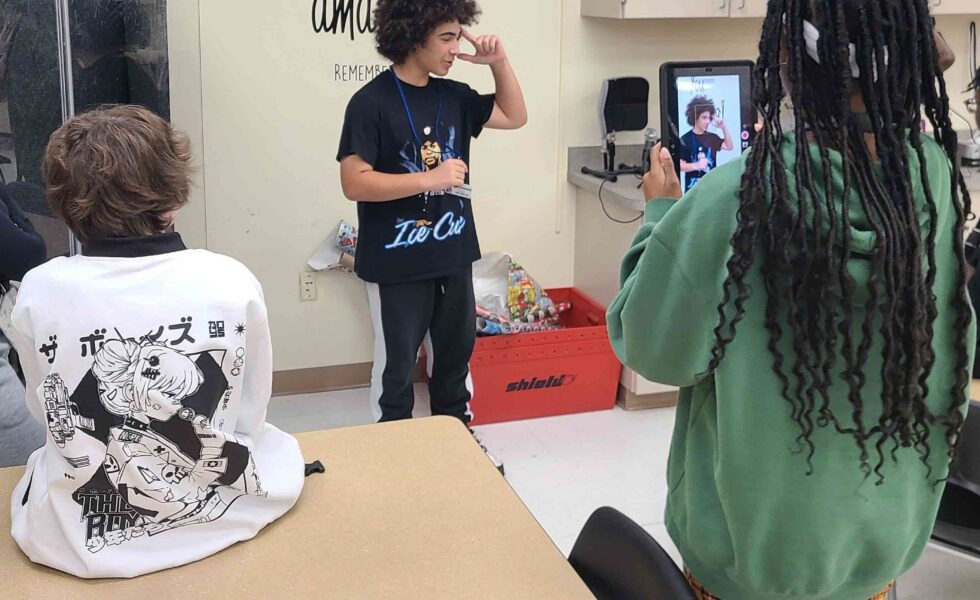Breaking It Down: Today’s Digital Citizens Week One

Breaking It Down is a blog series where we break down Youth Speak Out International’s Today’s Digital Citizens curriculum week-by-week, exploring the major concepts and activities. This post looks at the lesson for Week One.
The first moments of any of our summer and afterschool programs are filled with butterflies. Students make decisions right away about the facilitator and what he or she is there to teach them. At the same time, the Youth Speak Out facilitator tries to get a read on the class that they will be spending the next six weeks with.
The facilitator starts by introducing themself, introducing the program, and giving students a pre-survey, to find out what they do and don’t know about digital citizenship. Once that is completed, students are then divided into the groups that they will work with for the next six weeks to create their Public Service Announcements (PSAs) and given iPads.
The goal of the first week’s lesson is for students to become more aware of how others around them use technology and how excessive use may influence their relationships and well-being. Students should also use these observations to reflect on their own technology use. At the same time that students are having these conversations, the facilitator is also introducing filming techniques that the students will need to record their PSAs.
Students are also asked to sign the Today’s Digital Citizenship Pledge, which lays out guidelines for being a good digital citizen and serves as a roadmap for the topics that will be discussed in the rest of the program. Students are told to take the pledge home and review it with their families. They are also given the homework of observing their family’s technology habits.
Ultimately, we hope that students leave their first Today’s Digital Citizens class excited about what they’re going to create and eager to learn and discuss more about the digital world. We hope to give students a platform where they can express their thoughts and experiences and take away skills and habits that will make them better digital citizens.
 youthspeakoutint.org
youthspeakoutint.org

Leave a Reply